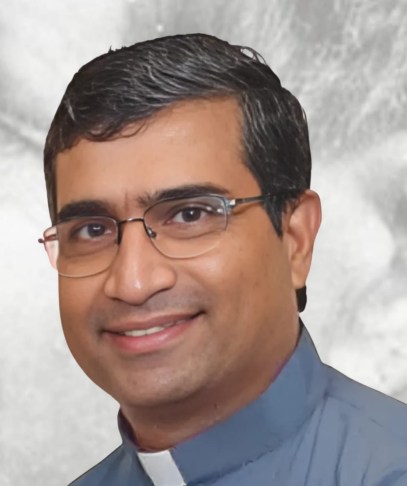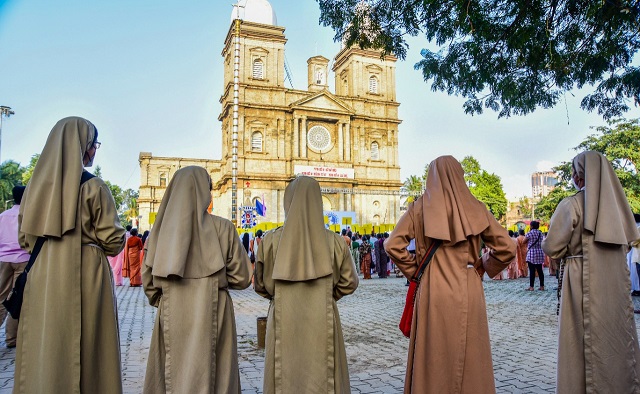At the heart of the Catholic Church are the men and women—priests, nuns, deacons, and brothers—who serve as clergy or religious, dedicating their lives to the Church and the Gospel. These individuals make significant sacrifices, leaving behind their families and personal aspirations to guide others on their spiritual journeys. Whether through celebrating the sacraments, offering counsel, teaching, or simply being present in times of need, their quiet dedication touches countless lives. It’s their selfless commitment that helps keep the mission of the Church spiritually alive.
Yet behind their sacred roles, these individuals are human—no different from the laity in their struggles. They face emotional, physical, and mental challenges that often go unseen.
According to The Journal of Pastoral Care & Counselling, nearly one in five Catholic priests experience high levels of burnout. This is a global issue. In Italy, suicide rates among clergy are reportedly higher than in the general population, with 4–5% of priests experiencing suicidal thoughts. A 2017 study by the U.S. Conference of Catholic Bishops found that 24% of priests had struggled with depression during their ministry.
In India, the Catholic Bishops’ Conference (CBCI) reported that 26% of clergy suffer from emotional exhaustion. In 2021, The Indian Express noted at least five clergy suicides in Kerala, though not part of an official study. Similar cases have emerged in southern states like Kerala and Tamil Nadu, including among nuns.
 Rev. Dr. Fr. Edison Fernandes, SDB
Rev. Dr. Fr. Edison Fernandes, SDB
To better understand these challenges, I recently interviewed Rev. Dr. Fr. Edison Fernandes, SDB, a Salesian of St.Don Bosco priest from the Konkan Province— based in Goa. With a Ph.D. in Counselling Psychology, Fr. Edison specialises in mental health and formation, and offers counselling, group therapy, psychodiagnostics, and psychological workshops to both religious and lay communities across India, integrating pastoral care with psychological insight.
(This interview has been edited for length and clarity)
How serious is mental health among clergy or religious, and what common challenges and causes have you seen?
The mental health crisis among clergy is far more significant than often acknowledged, yet it remains underreported and obscured by familiar justifications like “only a few have issues.” Recent years have seen a troubling rise in suicides among Catholic priests and nuns in India, particularly in some states where clergy density is high. A South Indian study found higher burnout and depression among diocesan clergy than religious.
Priests often face immense workloads and live in pastoral isolation, juggling multiple roles without the buffer of community or personal rest. Loneliness, spiritual dryness, and the pressure to project unwavering commitment can erode mental health over time. Many fear seeking help, worrying they’ll be seen as weak or unfit for ministry.
Female religious face parallel—often deeper—challenges. Nuns are frequently confined to repetitive institutional or domestic roles in rigidly hierarchical settings. Their autonomy is limited, open dialogue discouraged, and emotional struggles often dismissed as disobedience or lack of faith. Emotional neglect, unresolved trauma, and a chronic sense of invisibility have all contributed to disproportionately high suicide rates among nuns in certain regions.
The systemic suppression of emotional needs, combined with spiritual idealism, leaves many clergy—male and female—functioning on the surface while silently breaking down inside.
You’ve mentioned burnout as a major concern—what warning signs have you observed, and how can it be addressed before it leads to more serious issues?
Burnout among Indian clergy is pervasive, though often masked by spiritual language (e.g., dark night of the soul) or mistaken for a temporary spiritual trial. Common warning signs include emotional withdrawal, chronic fatigue, irritability, detachment from prayer, and declining interest in ministry. Physical symptoms—such as insomnia, digestive issues, or headaches—often accompany the toll.
Priests may suffer burnout from juggling pastoral, administrative, and social responsibilities alone in isolated parishes. Nuns frequently endure it due to rigid routines, lack of agency, and emotional suppression in tightly controlled environments.
Addressing burnout requires proactive care: establishing peer support groups, integrating counselling with spiritual direction, and normalizing rest. Superiors must be trained to detect early signs and respond with compassion, not reprimand. Preventive structures—such as scheduled sabbaticals and emotional accompaniment—should be seen as essential, not optional. Burnout is not a failure of vocation; it’s a human signal that healing is needed.
Given the stigma attached to mental health, how can the Church encourage clergy to see mental health care as a responsible and healthy choice?
In the Indian Church, psychological help is still viewed by many as a last resort—a response to crisis rather than a tool for growth. To change this, counselling and therapy must be integrated into the life of clergy as routine care, not remedial treatment. Just as spiritual direction is mandatory, so too should psychological accompaniment be normalized.
Creating a “Mental Health Sunday” or dedicated healing services where clergy openly name their emotional struggles could help break the silence. Making counsellors available in seminaries, parishes, and retreat centers—alongside confessors—can destigmatise the process.
Above all, Church leadership must lead by example. When bishops and superiors speak publicly about their own healing journeys, they model vulnerability as strength. In a culture that often chooses image over authenticity, the Church must choose truth—and healing—over hiding.
What strategies have you found most effective in helping clergy cope with stress, anxiety, or burnout?
One of the most effective strategies I’ve used is “embodied storytelling with spiritual integration.” This method invites clergy to map their personal and vocational journey through metaphors, drawings, or symbolic enactment—expressing pain, joy, confusion, and longing in creative, non-verbal ways.
We then connect these symbols to spiritual texts or liturgical images, allowing a re-interpretation of suffering not as failure, but as part of the sacred path. This helps bridge the divide between theological identity and emotional reality.
In India’s religious context—where many hide behind roles and rituals—this approach gives permission to feel deeply without shame. It allows healing to emerge not in contradiction to faith, but in communion with it.
What changes would you like to see in mental health support for clergy in India and worldwide?
I envision mandatory psychological retreats for all clergy—focused not on theology or performance, but on inner healing, emotional intelligence, creative rest, and deep listening. These should be led by lay professionals and clergy who’ve walked through their own struggles—not just administrators or spiritual directors.
In seminaries and convents, we need “Emotional Directors” who are trained to recognize trauma, repression, and fatigue early on. We must stop treating mental health as a private shame and start recognizing it as part of spiritual hygiene.
Globally, the shift must move from fixing broken clergy to forming resilient ones. Emotional literacy, self-awareness, and healing practices must be integral to formation—not afterthoughts.
How can the wider Church—parishioners, leaders, and bishops—better support clergy facing emotional struggles?
The Church must confront an uncomfortable truth: treating priests and nuns merely as sacred assets has contributed to a silent crisis. Admiration without authentic connection is not respect—it’s neglect. Parishioners must have the courage to move beyond passive reverence and ask unsettling yet necessary questions: “Are you truly well?” “When did you last rest?”
Likewise, bishops and superiors must abandon managerial postures and reclaim the role of compassionate shepherds. Emotional well-being should be evaluated with as much seriousness as doctrinal fidelity. Regular, personal check-ins, spaces for vulnerability, and a willingness to listen without judgment must become non-negotiable. Anything less risks perpetuating a culture where burnout, isolation, and hidden anguish are normalized.
The Church continues to invest heavily in buildings, programs, and appearances, while leaving the inner lives of its ministers under-resourced and misunderstood. If the Church is serious about renewal, then systemic mental health support must become a core priority—not a footnote. Healing will not begin with pious slogans but with the courage to care deeply, structurally, and relentlessly.
As both priest and psychologist, how do you manage the emotional and psychological challenges of your vocation?
As both a priest and a psychologist, I deal with emotional and psychological challenges through personal prayer or honest talk with God. In silence, I speak—not in reflection, but in truth—bringing before God what I usually hide. I imagine God asking questions like, “Why do you pretend you’re okay?” “Why carry burdens that aren’t yours?” “Why are you afraid to ask for help?” “When will you let yourself be loved, not just needed?” These moments of raw honesty keep me grounded. It’s not polished prayer, but heart-to-heart truth.
I also rely on honest friendships, take regular breaks (visit my aged parents) without ministry duties, and let go of the need to be perfect. Being a priest or psychologist doesn’t exempt me from fragility.
Acknowledging my vulnerability makes me more available to others. Ministry without self-compassion is unsustainable.
Lavoisier Fernandes, born and raised in Goa, is currently based in West London. His faith is “work in progress”- and a lifelong journey. He has always been fascinated by the Catholic faith, thanks to his Salesian schooling. He’s passionate about podcasting, theology, the papacy, and volunteering. He has hosted ‘Talking Faith’ series for Heavens Road FM, Catholic Radio, connecting with ordinary men and women within the Catholic faith, other faiths and examining issues affecting both the Church and society. He has also been a host on Shalom World Catholic TV for two episodes of the ‘Heart Talk’ series. He presently contributes for the Goa Diocesan magazine Renevacao.
Like this:
Like Loading…
Related


